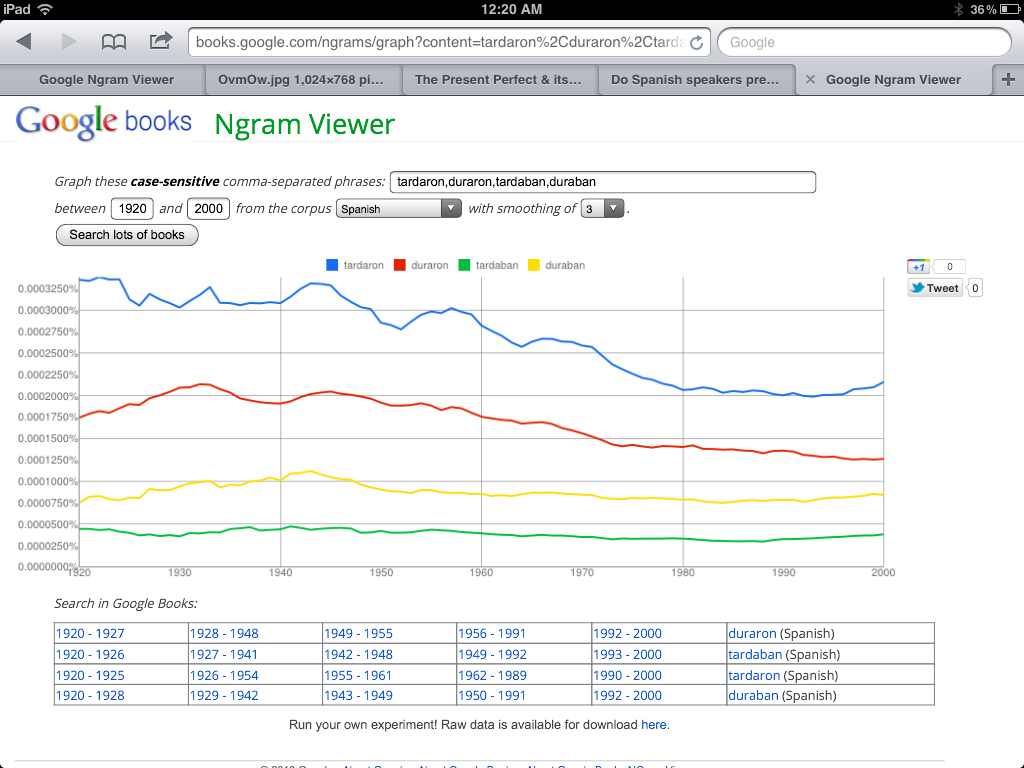In an effort to clearly delineate durar and tardar to my Spanish students, I have been searching for some usage notes and I was not satisfied with anything I found.
Instead, I was wondering if these two words represent two aspects of the same idea, somewhat similar to how Russian and Slavic languages have different words for different aspects; like how the писа- stem is imperfective, and the написа- stem is used for the perfective aspect and both mean to write.
I decided to test my hypothesis by doing a simple word-frequency chart and I compared the following two words to each other in thousands of books in Spanish.
- tardaron to duraron (preterite)
- tardaban to duraban (imperfect)
I chose the third person plural, because the verb tenses are unique. Whereas several other verb forms are not, such as the first and third person in imperfect; tardaba means both I took and He took. I skipped second person tenses because they seem dubious to search for in writing.

From the experiment it appears that Spanish writers prefer tardaron to duraron (preterite) about 2:1, and duraban to tardaban (imperfect) about 2:1, which is the complete opposite.
It seems like it makes sense, the nature of the word durar focuses on the duration of the action, whereas tardar focuses on the outcome.
Is this because Spanish speakers subconsciously prefer tardar for the preterite/perfect aspect, and durar for the imperfect aspect? Are there any words that would presumably follow this order?